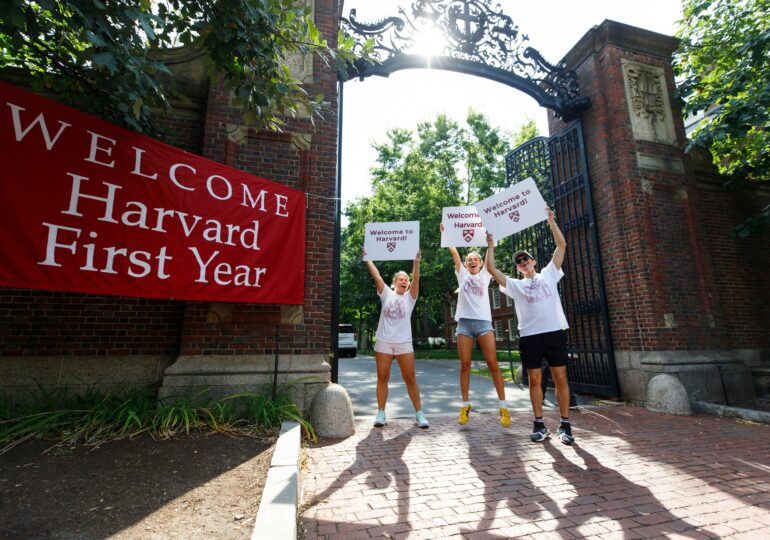The Trump administration sent a harsh letter to Harvard University regarding admissions, personnel, and curriculum requirements.
Later, an official informed the university’s leadership that the document had been sent without authorization, triggering a major dispute between the White House and one of the world’s most prestigious universities.
The letter sent to Harvard was "unauthorized"
On April 11, Harvard University received an official email from the Trump administration, signed by three federal officials, including the interim general counsel of the Department of Health and Human Services, Sean Keveney.
The letter contained a broad list of requirements related to the institution's hiring policies, admissions, and academic program, in a tone considered authoritarian and radical by the university's leadership.
On Monday, Harvard publicly announced its intention to reject the administration's demands, but immediately after, a White House official contacted the university, stating that the letter should not have been sent and that it was a "mistake."
According to sources familiar with the situation cited by the New York Times, the document was real, and its content had been discussed, but opinions within the administration were divided: some believed it was sent too early, while others said it was intended solely for internal circulation within the anti-Semitism task force.
Harvard rejects the demands and challenges the administration's actions
Harvard reacted strongly, stating that the letter was signed officially, sent from a government address, and there was no reason to consider it inauthentic or mistakenly sent.
The institution's leadership explained that up to that point, they had had cordial discussions with members of the presidential task force on anti-Semitism, and the letter's content was a complete surprise, radically changing the tone of the dialogue.
After Harvard publicly refused the demands, the Trump administration increased pressure by blocking federal funds to the university and issuing warnings regarding its non-profit status.
"Even though the letter was a mistake, the actions taken by the government this week have real consequences - on students, employees, and on the prestige of American higher education," Harvard stated in a press release issued on Friday.
Tensions between the White House and elite universities
The conflict with Harvard is the latest example in a broader series of attacks by the Trump administration on top universities, including Columbia, Princeton, and Penn.
The White House has accused these institutions of not handling anti-Semitism incidents correctly and promoting ideologies incompatible with American values.
In defense of the administration, May Mailman, senior policy advisor at the White House, argued that Harvard exaggerated its reaction and should have continued the dialogue with the task force: "It was a mistake on Harvard's lawyers' part not to call the task force members they had been discussing with for weeks. Instead of clarifying, they chose to play the victim."
However, Mailman left the door open for resuming dialogue if the university "apologizes to students for the anti-Semitic atmosphere" and adopts the administration's demands.
The initial dialogue was ambiguous
Before the scandal erupted, Harvard lawyers William Burck and Robert Hur had preliminary discussions with three Trump administration lawyers: Josh Gruenbaum (GSA), Thomas Wheeler (Department of Education), and Sean Keveney (Department of Health). The discussions were vague and lacked concrete details.
The White House had promised to send a letter with specifications on April 11, but Harvard's lawyers did not receive anything by the end of the day. Instead, overnight, they found the letter with radical demands in their inbox, leading to an escalation of the conflict.
The episode underscores the growing tensions between the Trump administration and major American universities. Although the White House suggests that the letter was a communication error, its effects have turned into a significant confrontation with major political and institutional implications.

